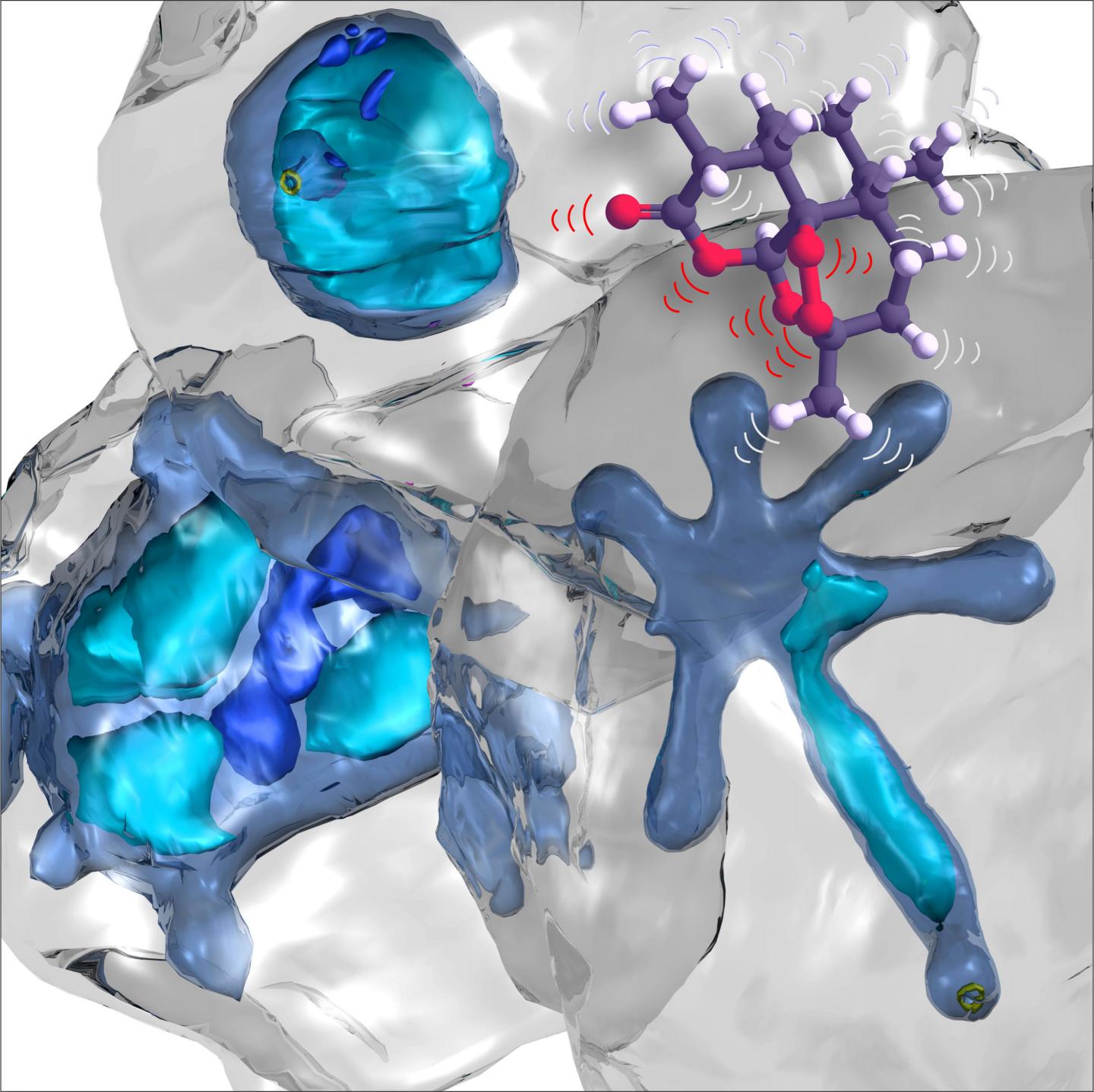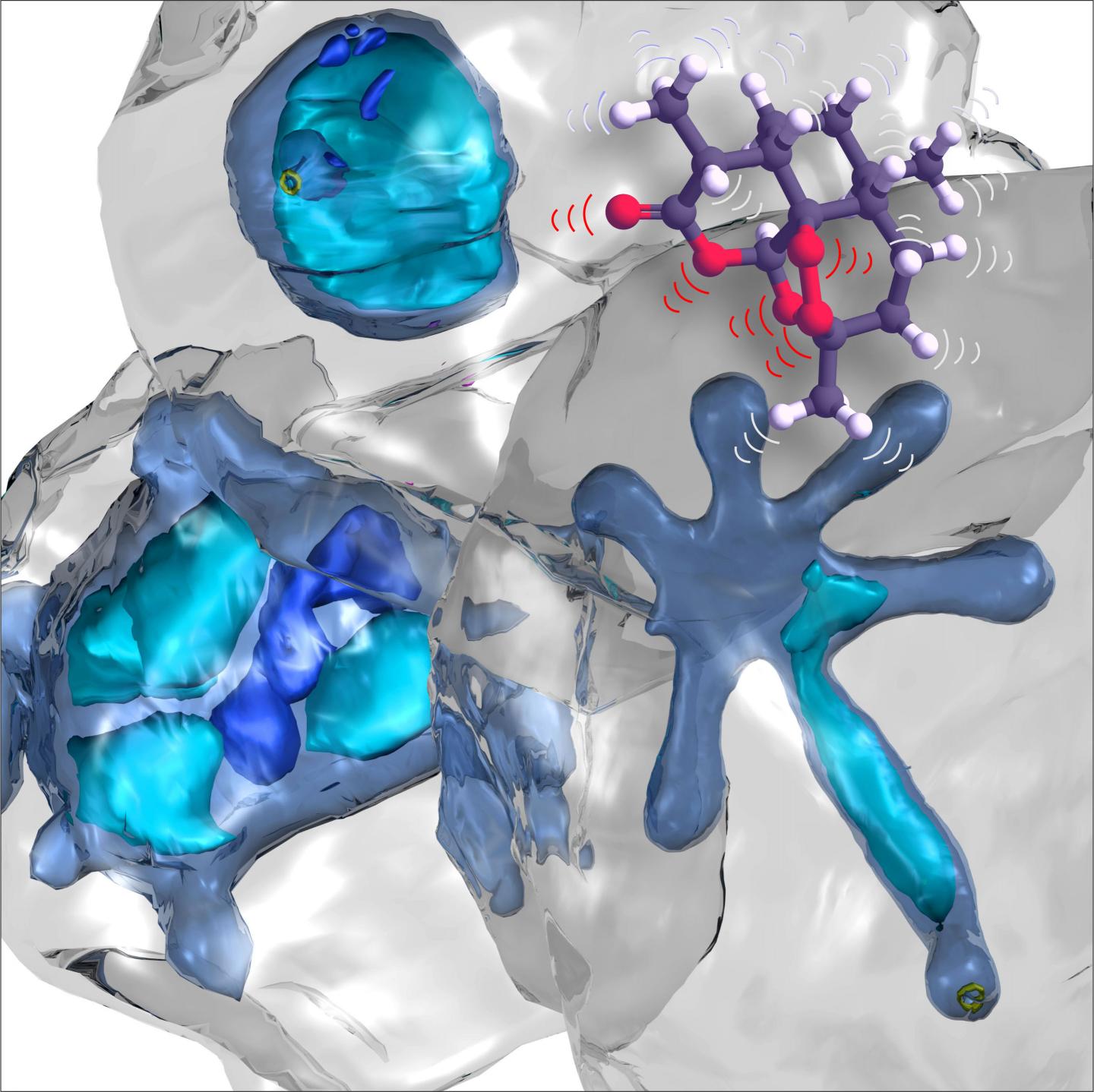
Credit: Dr Eric Hanssen
Scientists have found a way to boost the efficacy of the world's most powerful antimalarial drug with the help of chemotherapy medicines, according to new research published in the journal Nature Communications.
Scientists from the University of Melbourne and the Japanese pharmaceutical company Takeda have discovered that antimalarial drug artemisinin works through a "double whammy" attack on the deadly parasite.
The drug damages proteins in malaria parasites and clogs the parasite's waste disposal system, known as the proteasome.
University of Melbourne malaria researcher Leann Tilley said: "The double whammy effect means that combining artemisinin with an anti-cancer drug that also targets the proteasome, complements the activity of artemisinin, and can restore activity against artemisinin-resistant parasites."
Malaria claims the lives of about 450,000 people worldwide every year; artemisinin resistance has developed in South-East Asia, with fears it will soon reach Africa. The discovery of how artemisinin works is highlighted in the Nature Communications paper.
"The parasite's proteasome is like a shredder that chews up damaged or used-up proteins," Professor Tilley said. "Treating malaria parasites with artemisinin generates a lot of damaged proteins. Artemisinin and proteasome inhibitors thus can work together to jam the recycling system."
Blockage of the proteasome causes an accumulation of proteins that are marked with a "kiss of death" modification. When these damaged proteins build up, they stress the parasite and soon lead to cell death.
Professor Tilley and her team are working with Takeda and Swiss-based non-profit research foundation Medicines for Malaria Venture to identify parasite-specific proteasome inhibitors that could be advanced to clinical trials.
"At Takeda, we are proud to contribute our expertise to help address critical global health problems. In this case, we were able to leverage our oncology research on the proteasome system and uncover a potential new way to treat malaria," said Larry Dick, Director, Biochemistry, Oncology at Takeda.
"We are currently undertaking medicinal chemistry work to create novel analogs of human proteasome inhibitors that specifically inhibit the parasite proteasome " Professor Tilley said.
"We want a compound that can be administered orally and will last a long time in the bloodstream. If a suitable compound can be found, human trials could happen very soon."
###
* The University of Melbourne and Medicines for Malaria Venture have received approximately $868,600 (¥75,837,965) from the Global Health Innovative Technology Fund to conduct this research. Takeda is a collaboration partner contributing scientific knowledge and technical support.
* Feature article, available for republication under Creative Commons: https://pursuit.unimelb.edu.au/articles/using-chemotherapy-to-fight-malaria
Media Contact
Media office
[email protected]
61-383-444-123
@unimelb
http://www.unimelb.edu.au
Original Source
http://newsroom.melbourne.edu/news/anti-cancer-drugs-may-hold-key-overcoming-antimalarial-drug-resistance http://dx.doi.org/10.1038/s41467-018-06221-1





